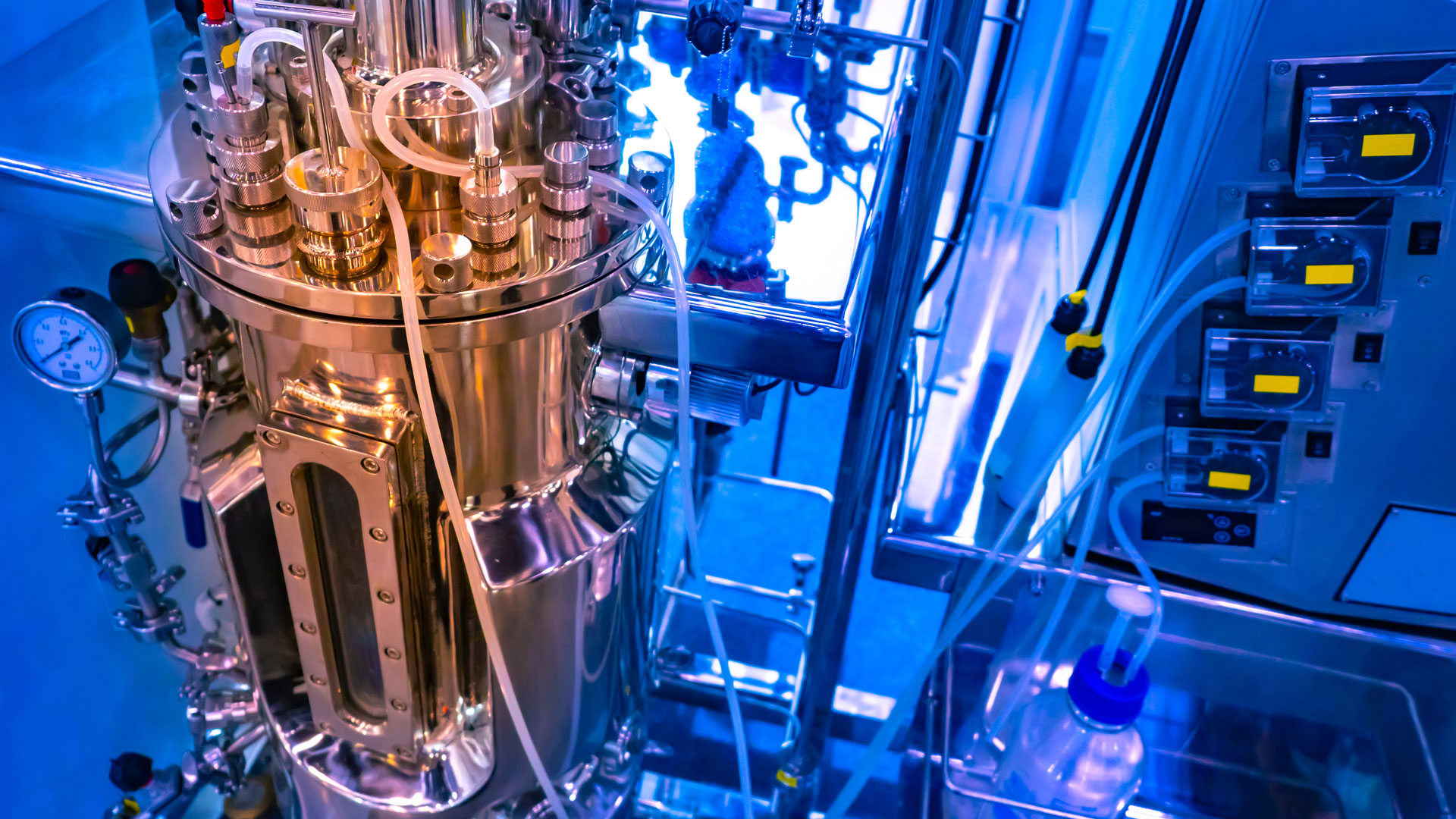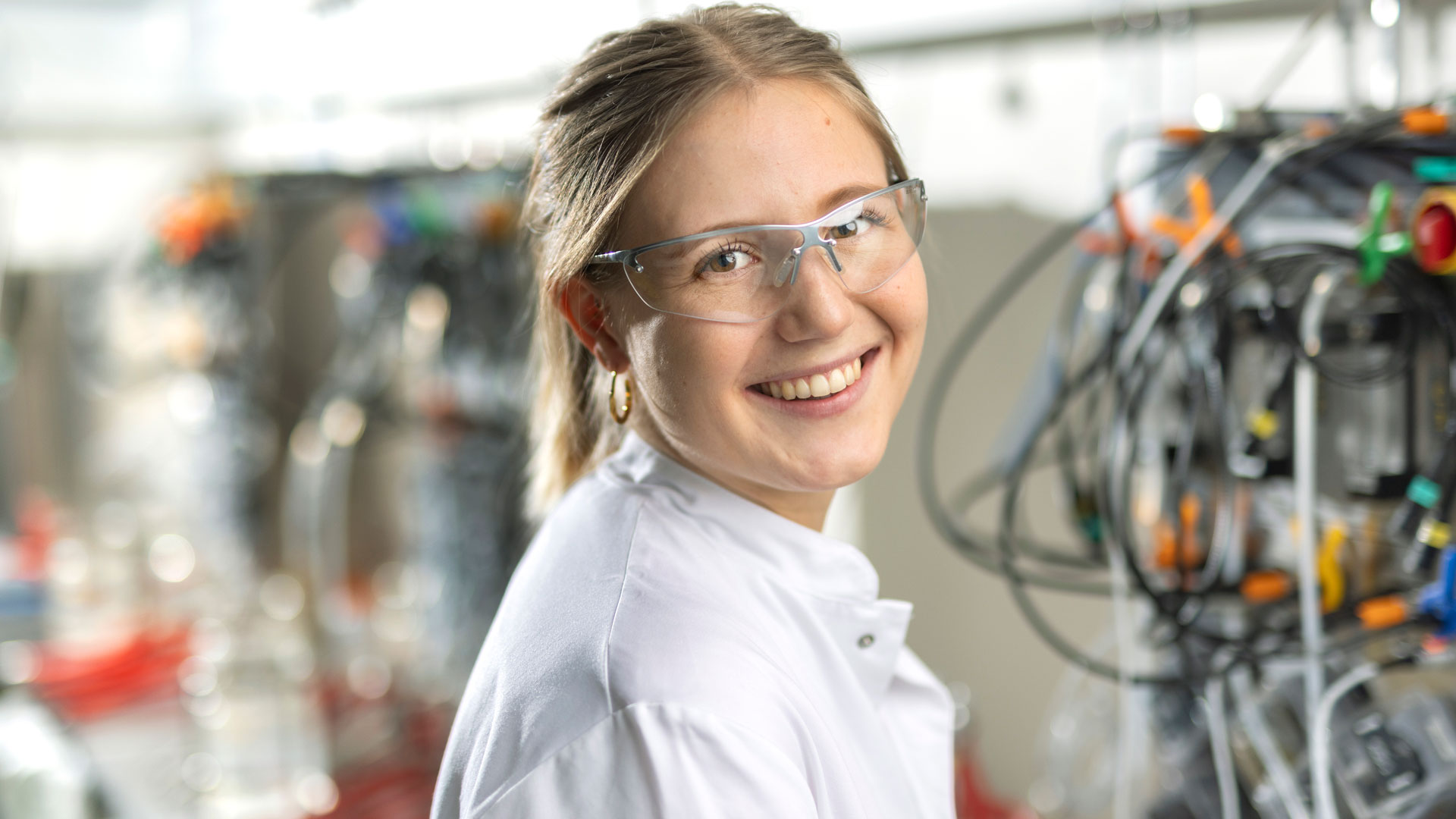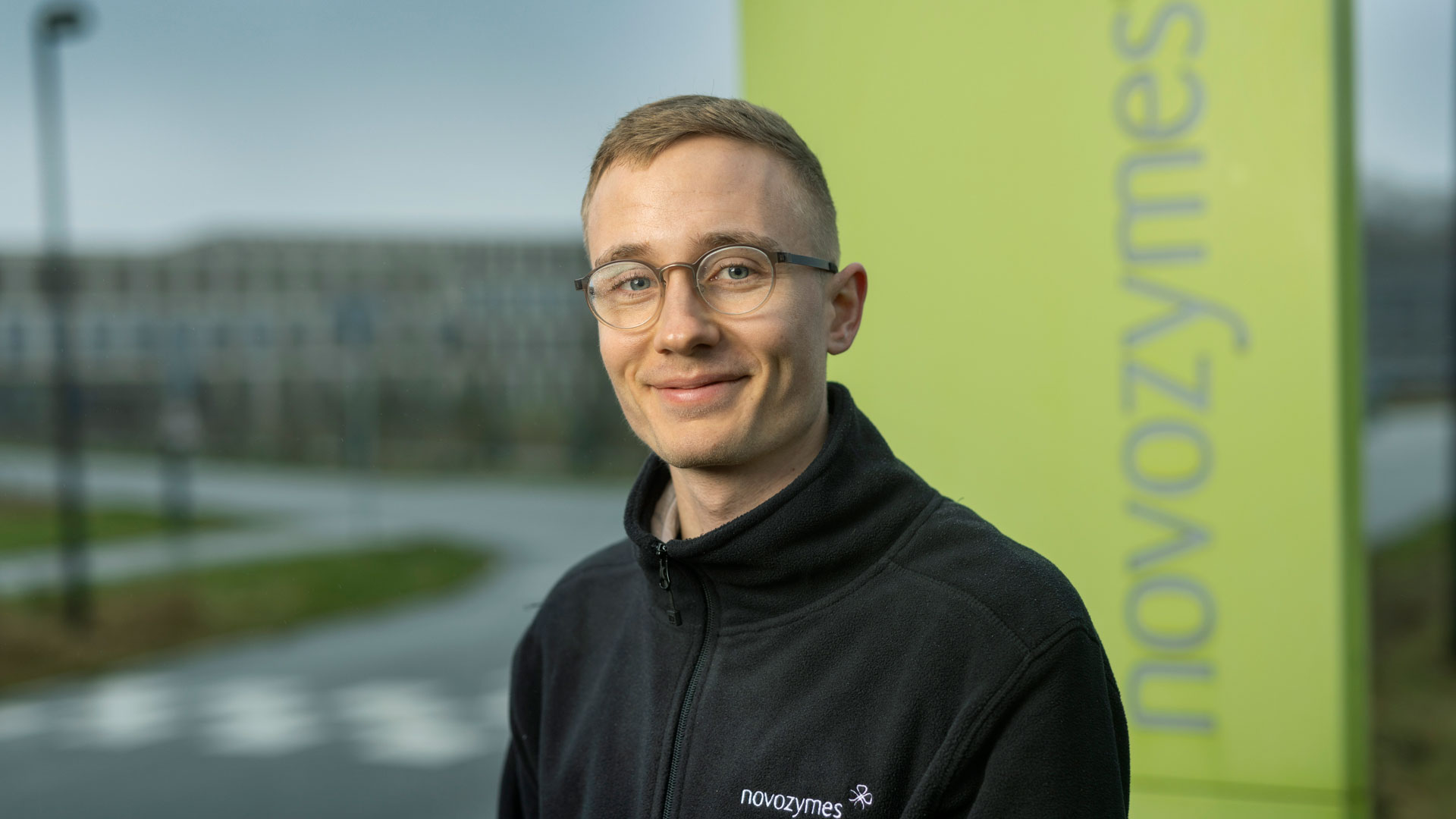“Industrial fermentation takes place in a large steel tank, and it’s actually a bit like a black box, because you don’t always know what’s going on in there and why. There is still so much we don’t know about fermentation processes, and I like being in a field where I can help find new knowledge,” says Thomas Rydal, who graduated from DTU with a specialization in fermentation and is today employed at Novozymes’ Fermentation Pilot Plant as a fermentation scientist.
Thomas Rydal’s interest in fermentation was aroused already as a BSc student because he was employed in student jobs in companies engaged in this field and through inspiration from lecturers at the University.
Therefore, his bachelor project also dealt with fermentation, and this made him even more fascinated by the technology. He therefore chose the study line Fermentation Based Biomanufacturing for his MSc programme at DTU.
“Cells are living organisms and complex to work with. In a batch, they behave in one way inside the steel tank, but then there may be a slight change in, for example, the water quality, and suddenly they behave in a completely different way,” says Thomas Rydal, who considered for a long time after graduating whether he should go down the research path or find employment in the industry.
A position in the industry
The answer came when - as part of his specialization - he did a 13-week internship at Novozymes, where he is today employed in the very department in which he did his internship. Although he graduated from DTU in February 2022, the employment contract had already been signed before Christmas in 2021. And he had his first day at work three days after he had defended his Master’s thesis.
“I’m very pleased with my position, because I can work with both the process technology in fermentation and with biology. At the same time, I also like the practical part—that is getting hands-on experience with fermentation - while I actually also have the opportunity to do a little research in my position. I thus have the opportunity to learn a lot of new things,” says Thomas Rydal.
Last, but not least, Thomas Rydal is also attracted to fermentation as a field because it is currently developing rapidly:
“Fermentation is undergoing a huge development, where an increasing number of companies are being established and are exploiting the technology’s potential to make more and more products, ranging from food to medicine. It also matters to me that it’s a technology that contributes to the green transition.”


